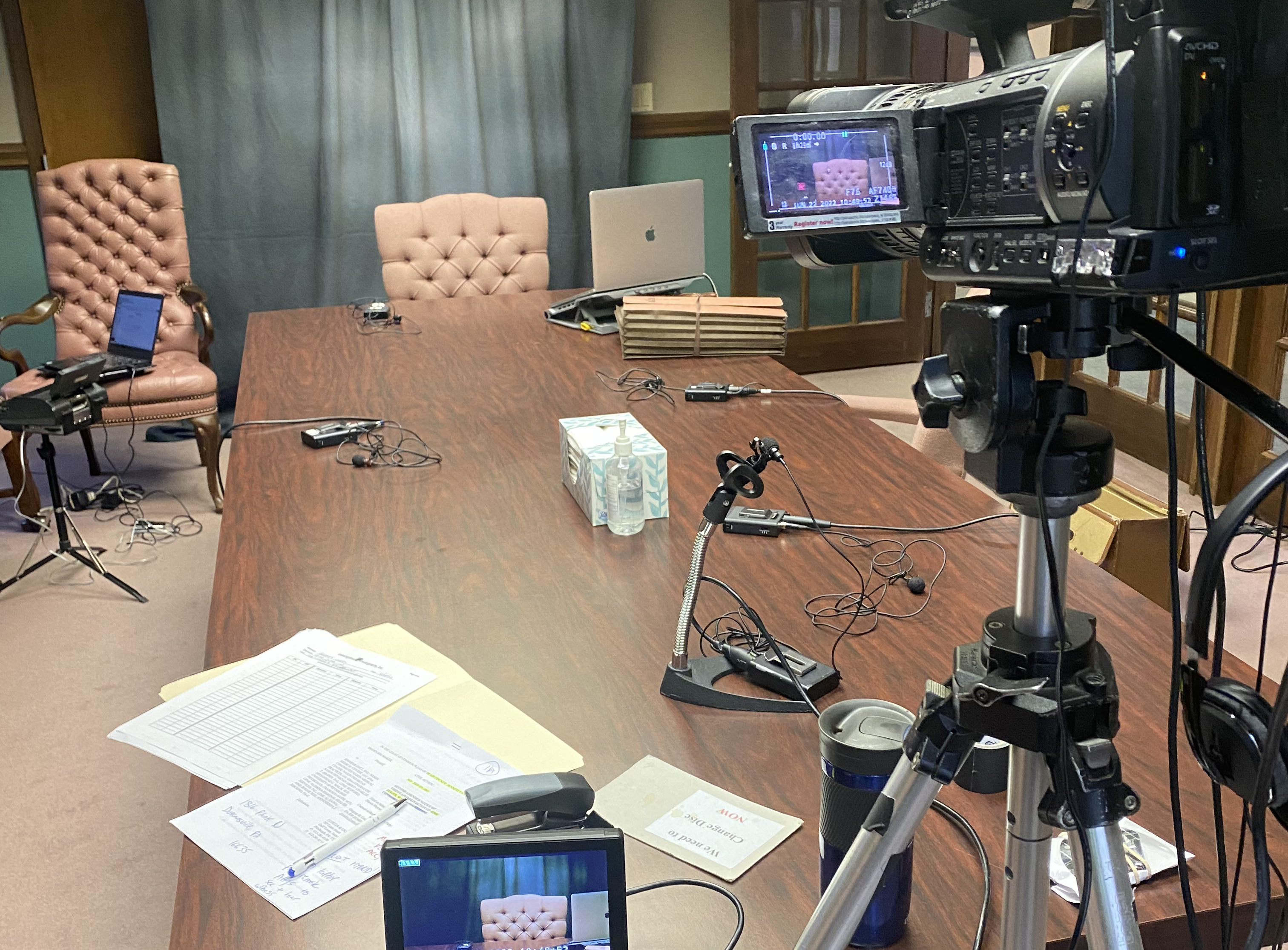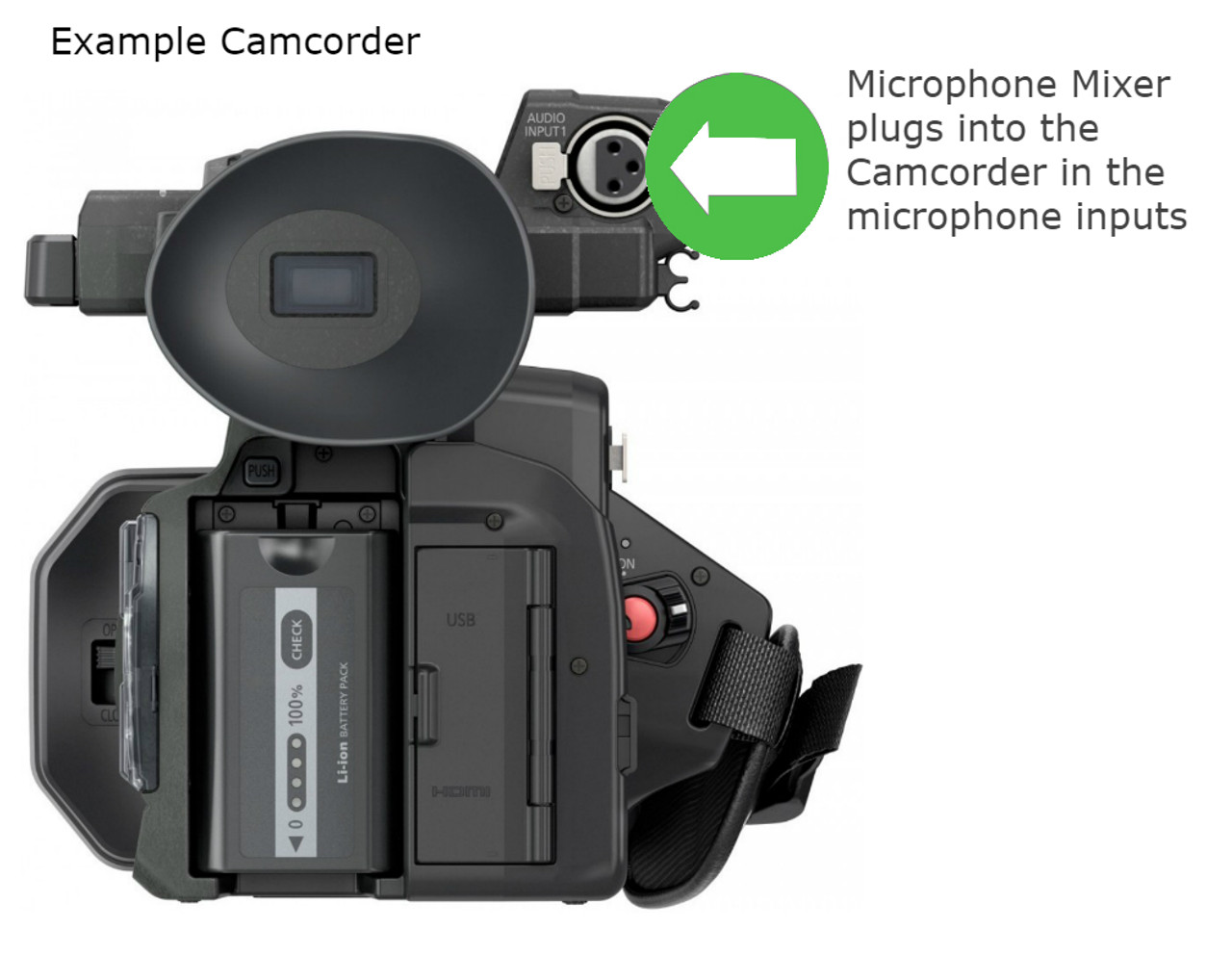The Relevance of Lawful Video Clip Depositions in Modern Legal Solutions: What You Ought to Know
Legal video depositions have actually come to be crucial in today's lawful landscape. They supply a multidimensional sight of witness statements that conventional transcripts merely can not match. By recording both non-verbal and verbal communication, these depositions enhance the total understanding of a witness's credibility. The performance of video clip depositions pivots on numerous variables, consisting of compliance with lawful criteria and finest techniques. Discovering these elements exposes their true value in modern-day lawful services
What Are Legal Video Clip Depositions?
Legal video depositions serve as a vital tool in the litigation process. They include videotaping witness testimonies in a video format, capturing both verbal and non-verbal interaction. This approach permits lawyers to record the disposition, expressions, and reactions of witnesses, offering a richer context for the statement. Normally performed in a regulated setting, these depositions are led by lawyers that ask inquiries while a court press reporter documents the discussion. The resulting video clip can be vital for test prep work, as it allows attorneys to examine the credibility of witnesses and refine their strategies. Additionally, lawful video clip depositions can be made use of in different legal contexts, ranging from civil disputes to criminal instances. The aesthetic and acoustic elements of video clip depositions boost the discussion of evidence, making it a necessary part in the contemporary legal landscape. Overall, they add significantly to the performance and efficiency of legal procedures.

Advantages of Video Clip Depositions Over Traditional Approaches
Video clip depositions use numerous advantages contrasted to conventional approaches of taking witness testimonies. One considerable advantage is the capability to record both visual and audio components, offering a more complete record of the witness's statements. This double format improves clearness and permits lawyers to reference certain nuances during trial prep work. Additionally, video depositions help with remote engagement, making it easier for witnesses who might be inaccessible for in-person appearances due to geographical restrictions or wellness issues.Moreover, video depositions can speed up the total deposition procedure, reducing the time and prices related to travel and logistics. They likewise improve availability, as videotaped depositions can be conveniently shared amongst lawful groups and referenced any time. This ease adds to far better instance administration and prep work. Generally, video clip depositions represent a modern, efficient method to gathering witness testimonies, aligning with the advancing demands of the legal profession.
The Role of Body Movement and Tone in Testimonies

In legal video clip depositions, body language and tone play vital duties in communicating a witness's reliability and trustworthiness. Nonverbal signs can offer understandings into a witness's emotional state, affecting how their testament is viewed. Recognizing the effect of these components is crucial for attorneys and jurors alike when examining the reliability of a statement.
Nonverbal Communication Insights
While spoken interaction is typically emphasized in legal testaments, nonverbal cues such as body movement and tone play a necessary role in communicating credibility and emotion. Viewers of depositions may note that a witness's posture, gestures, and face expressions can greatly influence understandings of integrity. Consistent eye get in touch with might signify self-confidence, while avoiding look can recommend dishonesty or discomfort. Similarly, the intonation-- its volume, pace, and pitch-- can pass on feelings of genuineness or unpredictability. Attorneys have to be in harmony with these nonverbal signals, as they usually provide vital context that enhances talked words. Recognizing these nuances can boost the effectiveness of depositions and influence the end result of lawful process.
Psychological Tone Effect
The emotional tone conveyed throughout lawful testimonies significantly impacts just how a witness is regarded. Body language, vocal inflections, and faces play crucial roles fit the story of a statement. A witness exhibiting self-confidence with steady eye call and a tranquil tone can instill a feeling of dependability and engagement. Alternatively, indications of anxiety, such as fidgeting or an unsteady voice, may lead to skepticism concerning their account. The subtleties of psychological expression can influence the analysis of facts, making it crucial for legal specialists to acknowledge these signs. In video depositions, the aesthetic and auditory elements incorporate, highlighting the significance of psychological tone in conveying genuineness and reliability within the legal procedure.
Reliability and Reliability
An important variable in establishing reputation and credibility throughout testimonies depends on the witness's body movement and intonation. Onlookers usually depend on non-verbal hints-- such as eye call, posture, and gestures-- to analyze a witness's sincerity. For instance, a witness that keeps eye contact and shows open body movement might be perceived as more sincere and trusted than one that stays clear of eye contact or shows up blocked. Additionally, intonation plays a vital function; a consistent, calm tone can strengthen the trustworthiness of the statement, while changes in pitch or volume might elevate uncertainties. Inevitably, the mix of body language and vocal tone significantly influences how a witness's statements are received and interpreted in a legal context.
Best Practices for Conducting Video Clip Depositions
Performing video depositions requires careful preparation and implementation to assure a clear and reliable presentation of statement. Initially, it is vital to select a peaceful, well-lit place to lessen diversions and protected optimal video clip quality. The equipment must be tested ahead of time, including cameras, microphones, and illumination, to avoid technical concerns during the deposition.Next, events involved need to review the style and procedures in advance, making certain that everyone recognizes their roles. The deponent must be briefed on the process, consisting of how to respond plainly and concisely.Additionally, maintaining an expert disposition throughout the session is crucial. This includes abstaining from talking over each other and confirming that all concerns are guided suitably. It is vital to tape the deposition in a layout that permits for very easy playback and review, preserving the integrity of the testimony for future use.
Legal Considerations and Compliance Issues
How do legal considerations and compliance issues impact the effectiveness of video depositions? Legal professionals must navigate a complex landscape of regulations, ensuring that video clip depositions stick to administrative regulations and criteria. Conformity with legislations concerning privacy, consent, and recording approaches is crucial. For circumstances, acquiring explicit permission from all parties entailed is needed to prevent legal repercussions.Additionally, the admissibility of video clip proof in court can rest on conformity with step-by-step demands. Guaranteeing that the equipment made use of satisfies technical criteria is likewise crucial, as low quality can weaken the deposition's reliability.Moreover, attorneys need to understand any kind of certain state laws that control video clip depositions, as these can differ significantly. Failing to attend to these factors to consider can not just threaten the stability of the deposition however also influence the overall instance strategy, inevitably affecting the client's lawful outcomes.
Exactly How Video Clip Depositions Impact Court Assumption
While video depositions can work as effective tools in legal process, their impact on jury understanding is substantial. The acoustic and aesthetic elements of video recordings supply jurors with an extra complete understanding of witness disposition, reputation, and emotional reactions. This multimedia more technique can boost the jurors' ability to evaluate the dependability of statement contrasted to typical text-based transcripts.Moreover, video clip depositions allow jurors to observe body language, tone of voice, and faces, all of which can affect their interpretation of the witness's statements. The existence of a witness on display can humanize them, promoting compassion and link, which might persuade jurors' viewpoints. Alternatively, a witness that shows up incredibly elusive or undependable on video clip might cause unfavorable understandings that influence a jury's decision. Eventually, the dynamic nature of video depositions plays a vital role in forming just how jurors translate evidence and reach their verdicts.
The Future of Video Depositions in Legal Technique
As advancements in technology remain to improve the lawful landscape, the future of video depositions is poised for substantial advancement. Technologies such as fabricated intelligence, virtual reality, and boosted video conferencing tools are expected to simplify the deposition procedure and enhance availability. Attorneys might use AI-driven analytics to evaluate witness trustworthiness and case toughness a lot more effectively.Moreover, the assimilation of online truth can permit juries to experience immersive simulations of depositions, giving deeper context and understanding. Additionally, the pattern toward remote depositions is most likely to persist, using greater adaptability for attorneys and customers alike.As remote work ends up being increasingly stabilized, video clip depositions will likely end up being basic technique, decreasing prices and time restrictions connected with conventional approaches. In general, these technical developments assure to enhance the efficiency, performance, and availability of video clip depositions in lawful technique, ultimately changing just how legal professionals get ready for test.
Frequently Asked Concerns
Exactly How Much Do Lawful Video Clip Depositions Generally Price?

Can Video Depositions Be Made Use Of in Any Kind of Case?
Video depositions can be used in numerous types of situations, consisting of civil, criminal, and household legislation. Their adaptability allows lawyers to existing witness statements effectively, adjusting to the details requirements of various lawful circumstances.
What Equipment Is Needed for a Video Clip Deposition?
To perform a video clip deposition, essential tools includes a premium video camera, microphone, lights, and a reputable recording device. In addition, a computer with editing software application might be essential wikipedia reference for post-production and formatting the final video clip.
For how long Does a Typical Video Deposition Last?
A common video deposition lasts in between two to 4 hours, depending on the intricacy of the situation and the number of questions postured. Extensive sessions may happen, yet breaks are usually included for participant convenience.

Are Video Clip Depositions Admissible in Court?
Video clip depositions are generally admissible in court, supplied they abide by lawful requirements and regulations of proof. Their usage improves clarity and protects witness testament, helping in the judicial procedure during hearings and tests. Legal video clip depositions have actually ended up being essential in today's lawful landscape. Additionally, legal video clip depositions can be utilized in numerous legal contexts, varying from civil disputes to criminal situations. In addition, video depositions assist in remote participation, making it simpler for witnesses who might be inaccessible for in-person looks due to geographical constraints or wellness issues.Moreover, video depositions can quicken the total deposition process, lowering the time and prices linked with traveling and logistics. Guaranteeing that the tools used fulfills technological requirements is additionally vital, as bad top quality can undermine the deposition's reliability.Moreover, lawyers should be conscious of any kind of details state regulations that govern video depositions, as these can differ substantially. In addition, the fad towards remote depositions is most likely to linger, supplying greater adaptability for lawyers and customers alike.As remote work comes to be progressively normalized, video clip depositions will likely become typical practice, visit this site right here minimizing expenses and time restraints linked with traditional approaches.